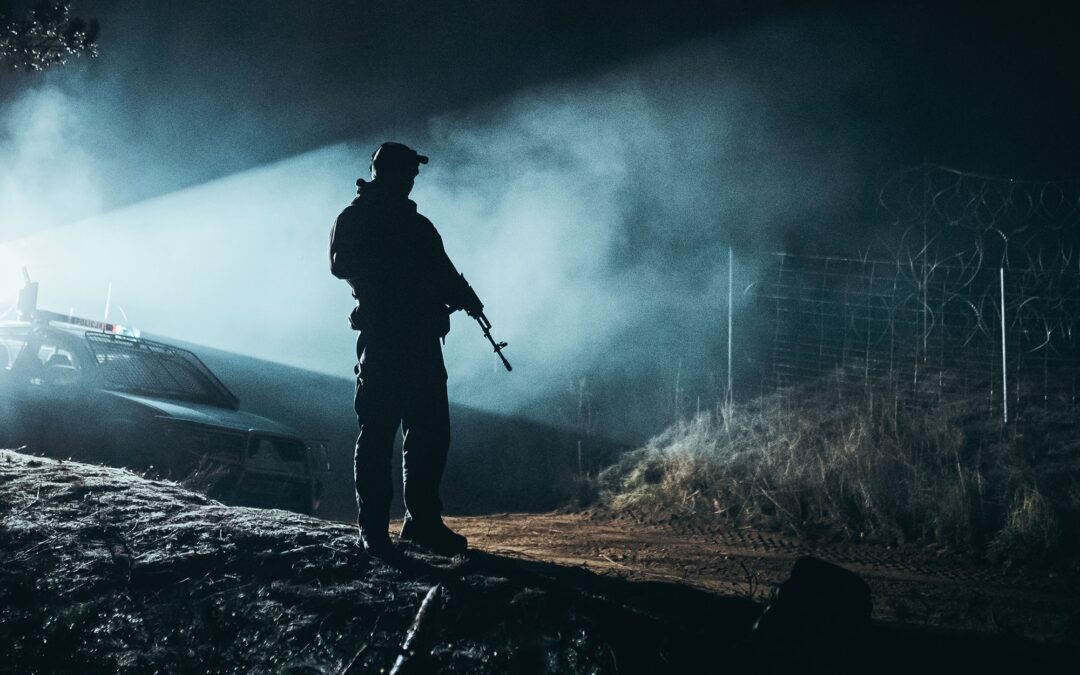Poland has strengthened security on its border with Belarus because of the “potentially new situation” arising from the arrival of soldiers from Russia’s mercenary Wagner Group, as well as its leader Yevgeny Prigozhin, following their recent rebellion.
“We are aware that the Wagner Group was invited to Belarus,” defence minister Mariusz Błaszczak told broadcaster TVP on Wednesday. “These are people who are trained, people who are ready for anything. So we can expect hybrid attacks with the participation of these people, and therefore we have reinforced the Polish border.”
Deputy PM Jarosław #Kaczyński in Warsaw:
We potentially have a new situation in Belarus with the Wagner Group presence.
Therefore, we decided to strengthen our defense on the eastern border, both in terms of some short-term projects and those that will be of a permanent nature. pic.twitter.com/fzmdji6kXV
— Poland in the EU (@PLPermRepEU) June 28, 2023
Since 2021, Poland has faced a crisis at its border with Belarus, where the Belarusian authorities have been helping tens of thousands of migrants and asylum seekers – mostly from the Middle East, Asia and Africa – seek to cross into the European Union, in what Warsaw has called a form of “hybrid warfare”.
The arrival of Wagner forces in Belarus “could mark a new phase of hybrid warfare, a phase much more difficult than the one we have faced so far”, said deputy prime minister Jarosław Kaczyński at a press conference earlier on Wednesday. “Therefore, decisions have been made to strengthen our defence on the eastern border.”
“Reinforcement refers directly to the strengthening of the forces that will be there permanently, as well as the strengthening of obstacles and various types of fortifications to protect our border should it be attacked,” he added. However, neither Kaczyński nor Błaszczak provided specific details of what measures have been taken.
Poland has begun construction of an electronic barrier, consisting of cameras and motion sensors, along its 200-kilometre border with Russia.
"I am convinced that it will be the EU's best-secured border," says the interior minister https://t.co/JTLHlbvsiP
— Notes from Poland 🇵🇱 (@notesfrompoland) April 18, 2023
The Wagner Group is known to have had some of Russia’s best-equipped and best-trained fighters, who played a leading role in the invasion of Ukraine. Last week, however, the group led a rebellion that saw them take over the Russian city of Rostov-on-Don and advance towards Moscow.
However, the uprising quickly ended, with Prigozhin – a figure once seen as a close ally of Vladimir Putin – agreeing to stand down and relocate to Belarus.
Many of his Wagner mercenaries are believed to have joined him, and Kaczyński announced yesterday that, “from the data we have, it can be thought that it is around 8,000 soldiers”.
He noted that, as well as representing a threat to Poland, the presence of Wagner forces in Belarus was also a danger to Ukraine and to Lithuania, which both also border Belarus.
Poland has activated the first section of an electronic barrier on its border with Belarus, built in response to last year's migration crisis.
It will be the longest such barrier monitored from a single control centre in the world, says the government https://t.co/IWjO50nzmd
— Notes from Poland 🇵🇱 (@notesfrompoland) November 22, 2022
Since the start of the migration crisis in 2021, Poland has already significantly strengthened its defences on the Belarus border, including boosting the number of border guards as well as building a wall and electronic surveillance system.
While Poland has warned that the presence of the Wagner Group in Belarus increases the danger of “hybrid” actions, Kaczyński added that it was not “particularly likely” that there could be a direct “armed attack”.
Tensions between Poland and Belarus have also increased in recent years over Warsaw’s support for the democratic Belarusian opposition and Minsk’s repressive measures against Belarus’s large ethnic Polish minority.
Poland has sanctioned 365 Belarusians, including one of President Lukashenko’s sons, in response to last week’s decision by Belarus’s Supreme Court to uphold the prison sentence given to a leading figure from the country’s ethnic Polish minority https://t.co/okUfdSsUH5
— Notes from Poland 🇵🇱 (@notesfrompoland) May 30, 2023
Main image credit: Irek Dorozanski / DWOT (under CC BY-NC-ND 2.0)

Alicja Ptak is deputy editor-in-chief of Notes from Poland and a multimedia journalist. She has written for Clean Energy Wire and The Times, and she hosts her own podcast, The Warsaw Wire, on Poland’s economy and energy sector. She previously worked for Reuters.




















